ALPHA-PHONICS Blog Editor Comment: We have not previously heard of anything like this situation. It is amazing to learn about it, to say the least. You will probably be surprised, if not disturbed, by what you read:
High School Students Want to End
(what they feel is) School Indoctrination
1 CommentsNovember 13, 2019 Updated: November 13, 2019
By middle school, Common Core was “in full force” with assignments aimed to get students to think a certain way. But there was a more pressing issue at hand.
There were multiple teachers who would outright make fun of students, calling them names, on a repeated basis. In eighth grade, the three students and their friend Maxwell Spurgeon decided to push back, gathering signatures for a petition and reporting the bullying to the administration. Shortly thereafter, they founded SPARK, or Students Protecting All Rights for Kids.
When they reached high school, Common Core was something they could ignore no longer. “There was a lot of political bias,” Brody said

Getting Assignments Thrown Out:
The students started collecting assignments they felt shouldn’t be allowed in public schools, and brought them to the administration to try to get them taken out of the curriculum.
These included an article by David Bender, chief strategy officer and political director of Progressive Voices, in which students read descriptions of what liberals and conservatives stood for, and were asked to highlight what they agreed with and self-identify as either a liberal or conservative. Bender’s affiliation aside, the liberals, as he defined them, “generally approach human nature with a great deal of optimism,” while conservatives, “not having such an optimistic opinion of people, feel they must often be controlled for their own best interests.”
Another assignment they were told was meant to “challenge or change your beliefs” had students look at various paintings through a feminist lens, and a Marxist lens. One of these paintings showed Purgatory.
In 2016, the district stopped using Common Core. But the students still saw many assignments stamped with Common Core standards, so they started collecting those for removal as well.
When they first started to submit assignments for review and removal, the administration pushed back. They were called in one by one to be questioned, or interrogated. It was likely to scare them off the issue, but they said it didn’t work.
“It was a scary thing, you know, as a sophomore, junior, in high school. You didn’t really know what you were doing, besides knowing this is wrong,” Dylan said.
“They even tried to shut our group down numerous times. Camdenton High School was not fond of SPARK,” Mason said.
Eventually they managed to get the district to form a committee of community members to review assignments they submitted for bias, which was grounds for removal. But even then, they’d each gotten a zero or F on an assignment even after it got dropped. Assignments that they got removed once—like the reading on liberals and conservatives—might get quietly put back in.
So they’ve been documenting the process, keeping copies of assignments and materials given out in the classroom.
Spark Receives Growing Support
Things got easier in some respects. SPARK is a membership organization, and at any given point in time they had up to some 30 students; some would leave under pressure, or graduate, and new students continued to join. The group became well-known not just in school but in the larger community.
“I’d say that’s what helped us the most, was that it wasn’t just a couple of students voicing their concerns, it was 20, 30 students going up there,” Mason said.
“And the students felt better knowing that they had a voice,” Dylan said.
They felt they were dealing with a First Amendment rights issue, with freedom of speech and freedom of belief, and they were also calling attention to students’ rights—that students attending public school deserved a fair education. They were tackling nonpartisan issues, and the membership reflected that: Students of different ethnicities and with a range of political and religious beliefs participated.
“They were disgusted, more or less,” Dylan said of his own parents learning about the kinds of assignments they were being given in schools. Other parents in the community had similar reactions. “I haven’t met one parent who supported the assignments we got kicked out.”
In many cases, Dylan added, parents are completely unaware of the level of indoctrination, and it’s not their fault. The kid comes home from eight hours at school, and the parents will ask how it went. They’ll say “good,” and that’s the end of it.
“Any kind of fundamentals, you know, morals that your parents tried to teach you throughout your life, gets kind of stripped away from you when we go into the school system,” he said.
“It’s become an epidemic across the nation and a lot of people don’t even know it’s happening,” Brody said.
As they gained traction, they heard support from teachers as well—quietly.
“Really we don’t want to harm Camdenton, we don’t want anything bad to happen there. We want it to be a good place to go to school and we want it to be a place where people can learn,” Dylan said.
Legislation and Expansion
SPARK has turned into a movement, and though the three students have already graduated high school and have moved on to college, they haven’t stopped their efforts to reform their local district.
“What I’ve seen, I don’t want another person to go through the same thing. It’s really repulsive,” Mason said.
One of SPARK’s goals is to expand nationally. They have already been holding workshops for parents and students of neighboring school districts, so they can set up similar membership groups and start to advocate for bias-free education. People from Virginia, Washington, Oklahoma, and a few other states have contacted them to say they’re starting SPARK as well.
This information brought to our Blog Followers as a service by ALPHA-PHONICS. To learn learn about ALPHA-PHONICS please follow the links below:

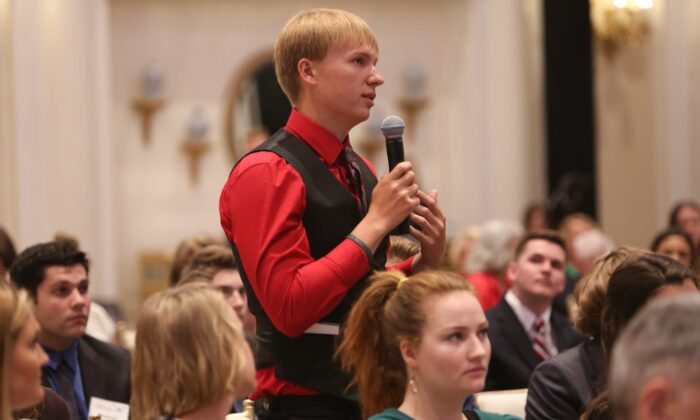
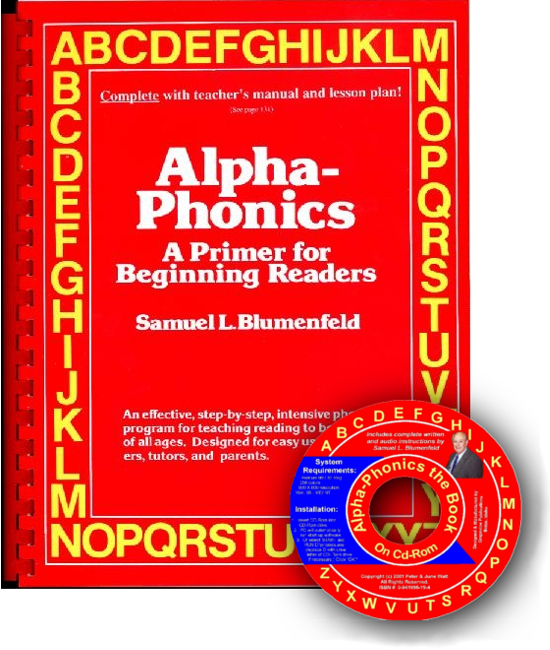 Alpha-Phonics
Alpha-Phonics The Alphabet Song!
The Alphabet Song! Water on the Floor
Water on the Floor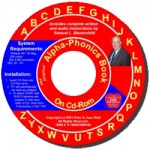 Alpha-Phonics the Book on CD Rom
Alpha-Phonics the Book on CD Rom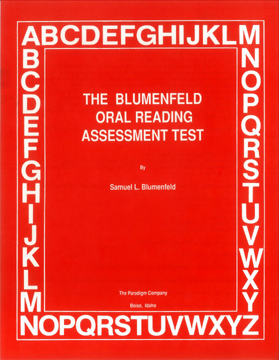 Blumenfeld Oral Reading Assessment Test
Blumenfeld Oral Reading Assessment Test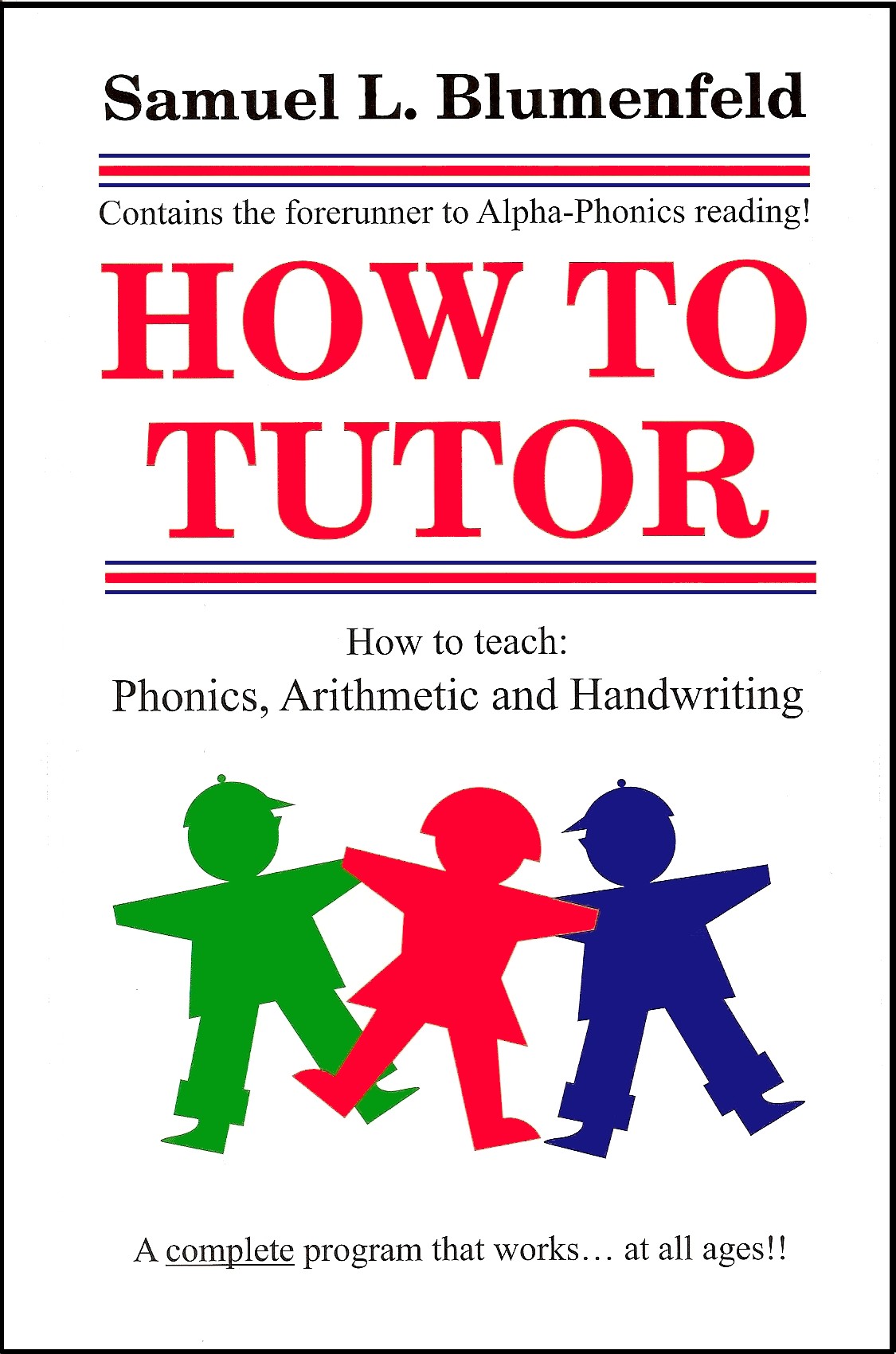 How To Tutor
How To Tutor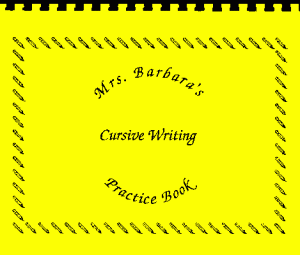 How To Tutor Cursive Handwriting Workbook
How To Tutor Cursive Handwriting Workbook